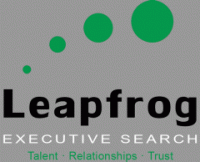Is It Time To Re-Own Your Career?
Category : 2017
As an executive, you have encouraged associates to own their careers. You reminded the people around you that an employer is not responsible for career development. You’ve quoted Covey, Ziglar, Blanchard, and Robbins to encourage people to aim high, plan well, and work hard to achieve their goals.
What about you? After a decade or two of success, what are you doing to position yourself for the best possible career outcome, in your current leadership role or with another organization? How committed are you to owning and driving your career?
Commitment to your career demands an intentional and consistent evaluation of the path ahead, and actively defining and demonstrating your value to your target market. Effective brand managers maintain a relentless focus on the product, it’s look, the price, packaging, and what the target market says about the product. An executive who successfully manages his or her brand, maintains the same focus.
Defining and enhancing your personal brand includes:
- Maintaining your career resources (resume, executive biography, social media) consistent with your capabilities—and your aspirations.
- Dressing for where you’re going—not where you are. Make the investment and get the coaching you need to “package yourself” at the top of your peer group–every day!
- Seeking out and taking advantage of executive assessments, coaching, feedback from people you trust, and targeted executive development programs.
- Resisting the temptation to create a public “image” that is more—or less than who you are. Reality always trumps rhetoric.
Veteran business leader, Tom Peters captured the power of branding when he said, “All of us need to understand the importance of branding. We are CEOs of our own companies: Me Inc. To be in business today, our most important job is to be head marketer for the brand called you.”
At a company, in an industry, and among your peers, owning your career enables you to define your value, communicate your differentiation and demonstrate your relevance in an increasingly competitive marketplace.
Call us today to explore how you can enhance your brand, and advance your career.
Contacts:
Jim Hess
214-435-5409
jhess@leapfrog-services.comJoe Jordan
214-714-3987
jjordan@leapfrog-services.com

